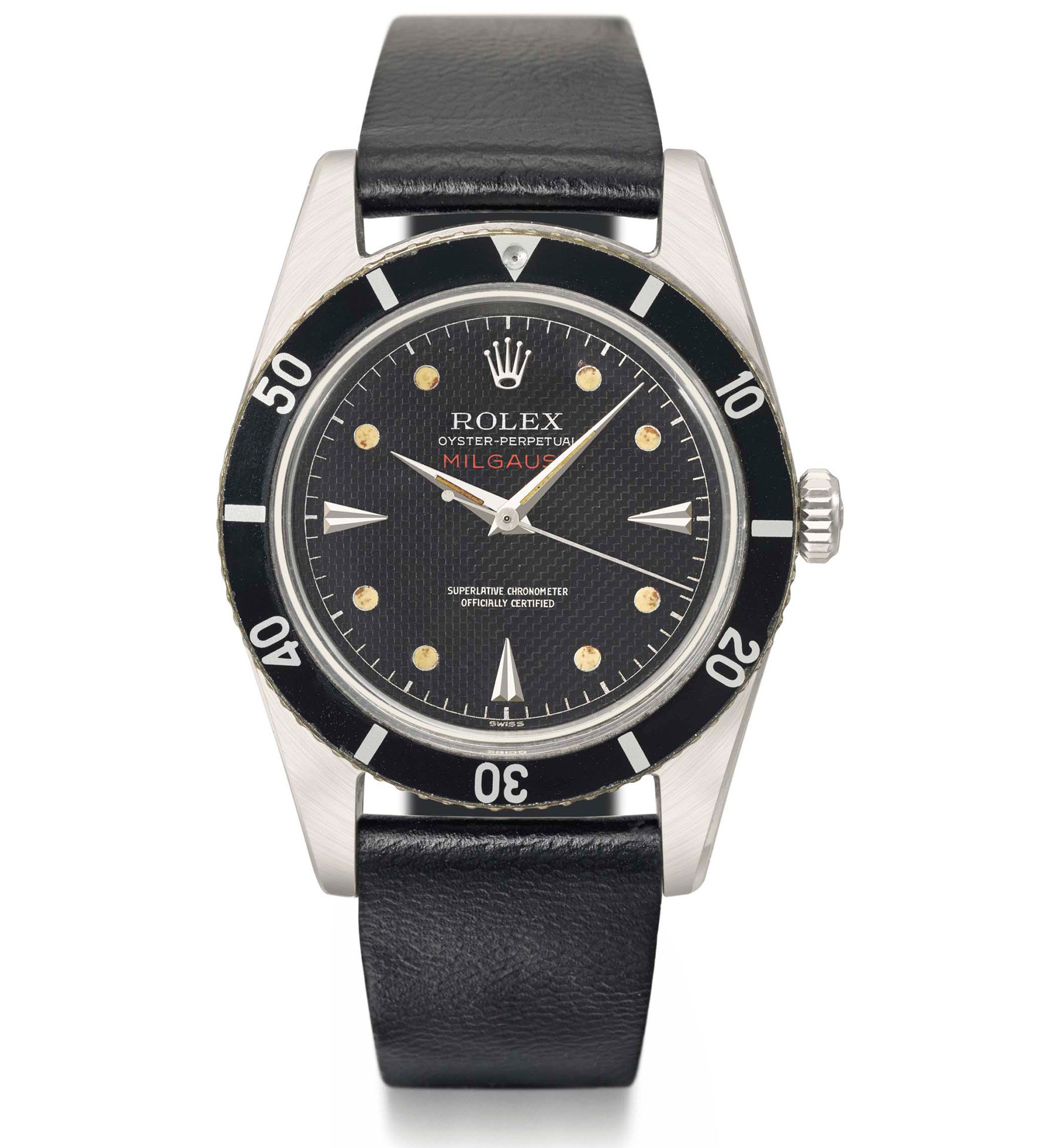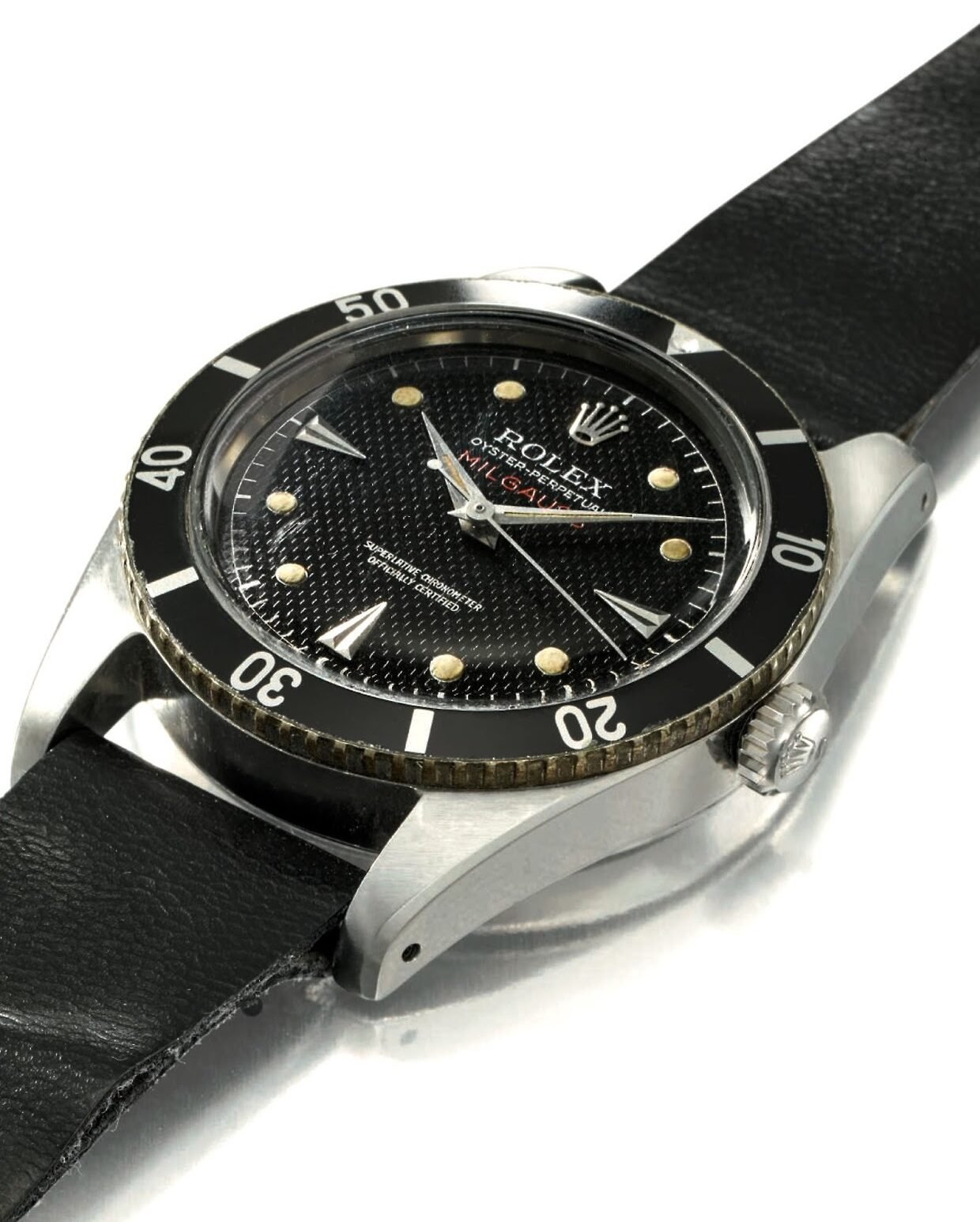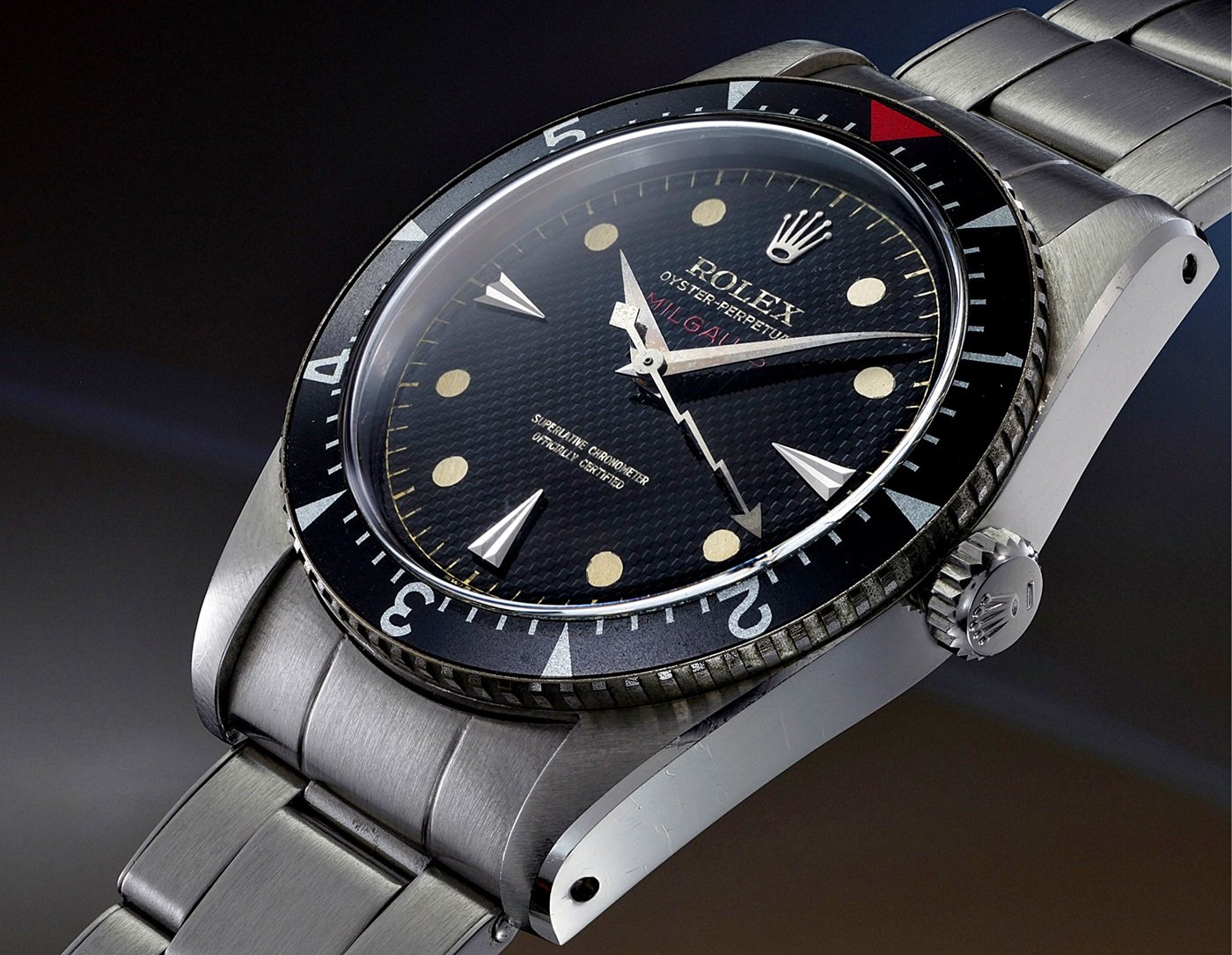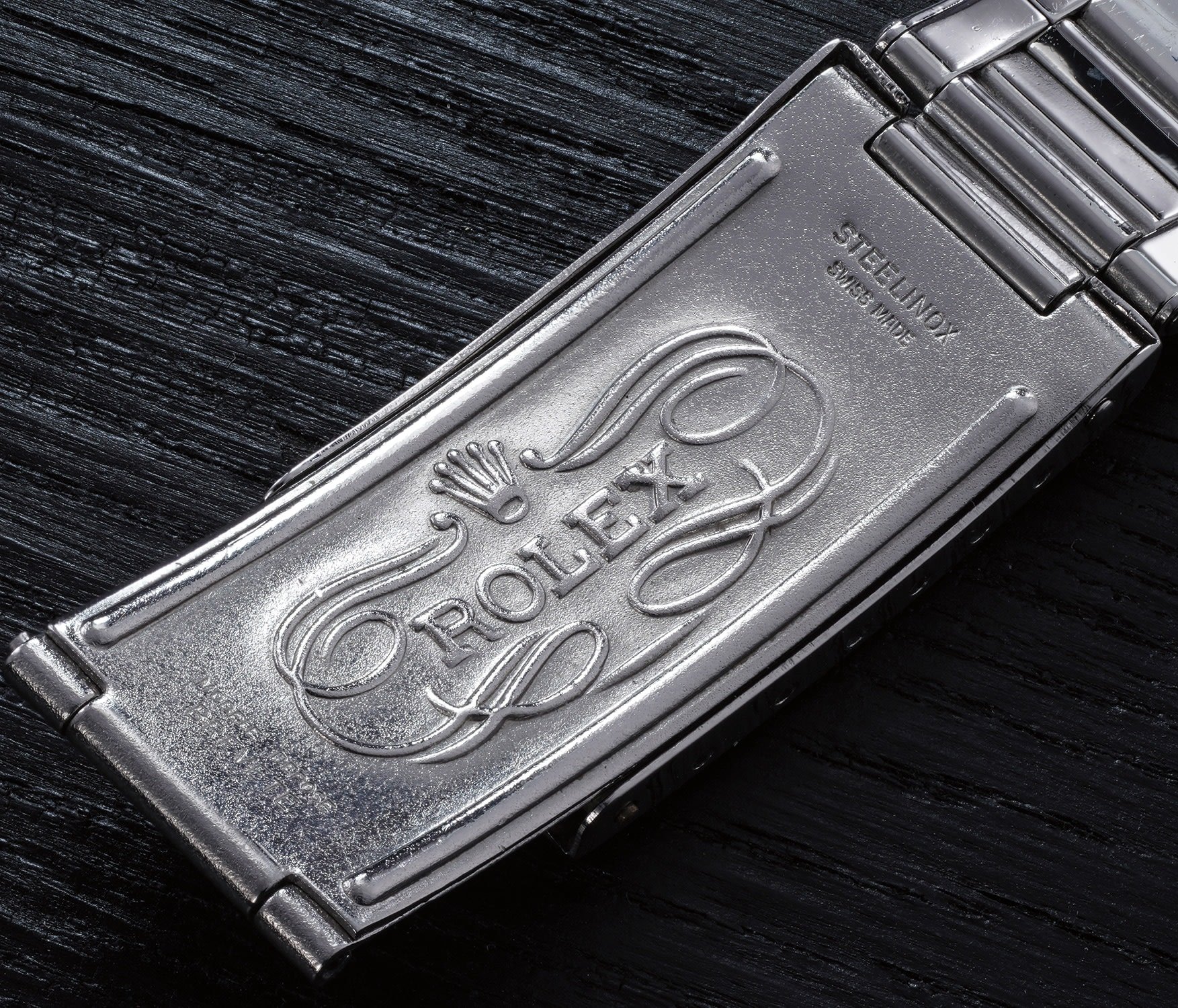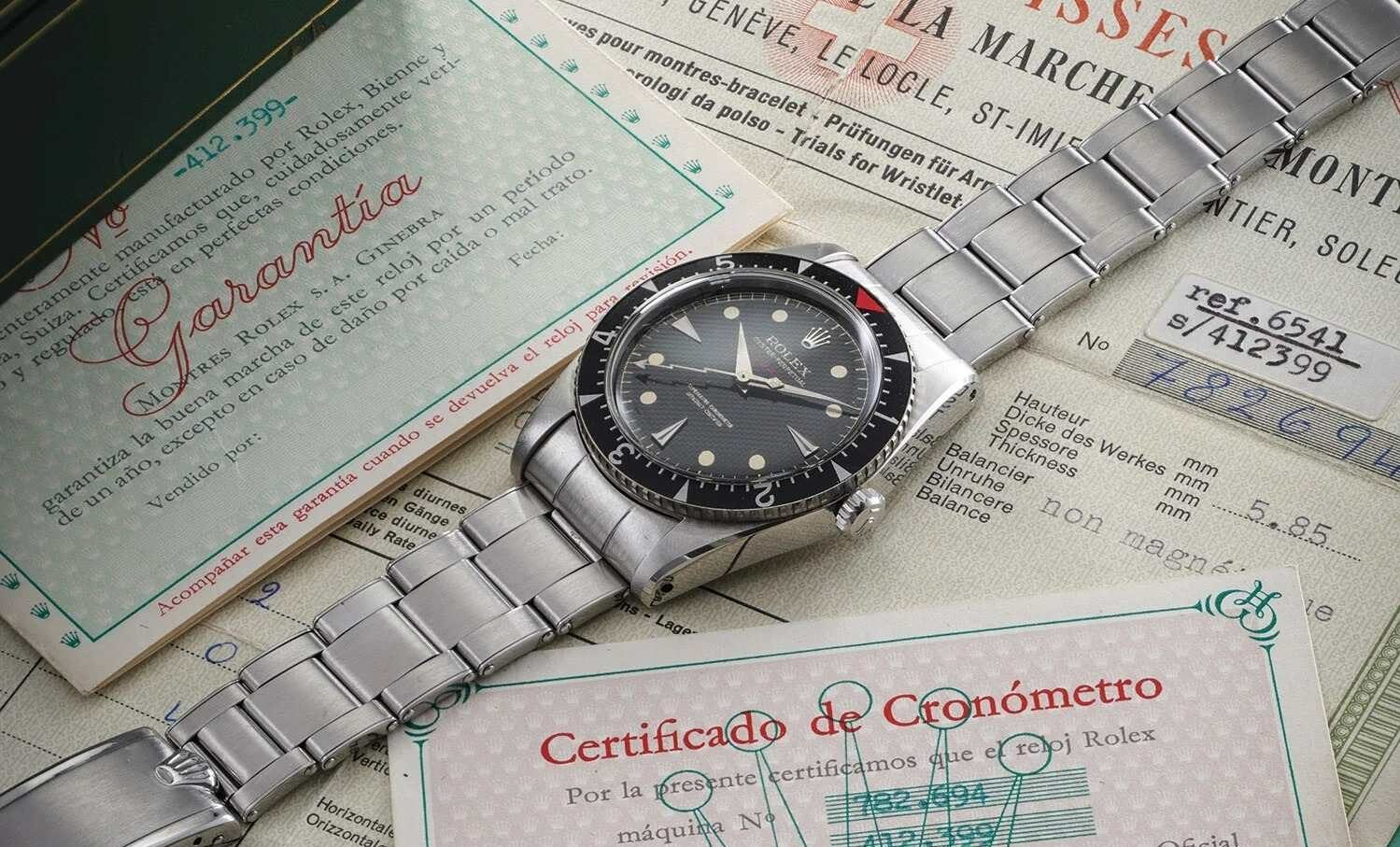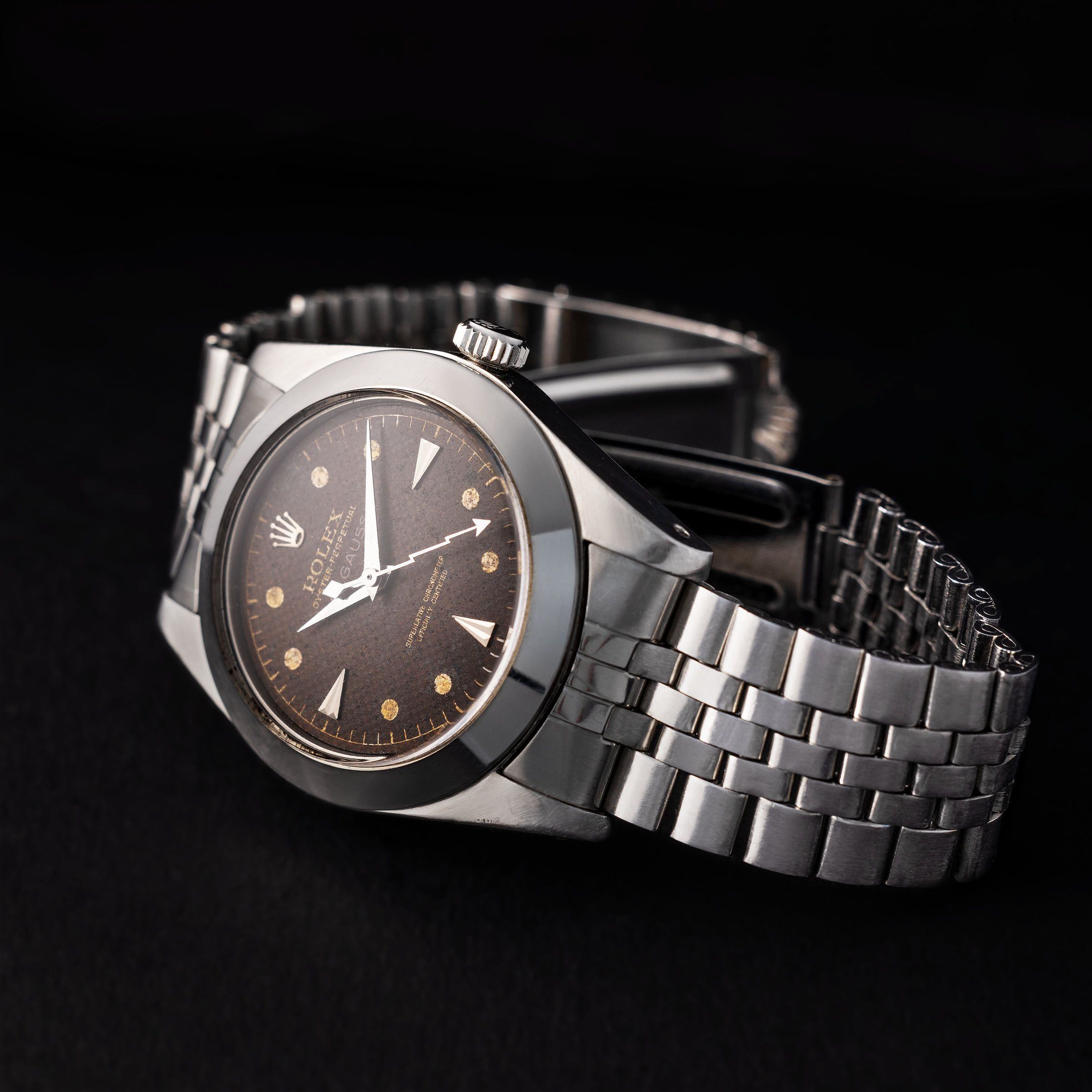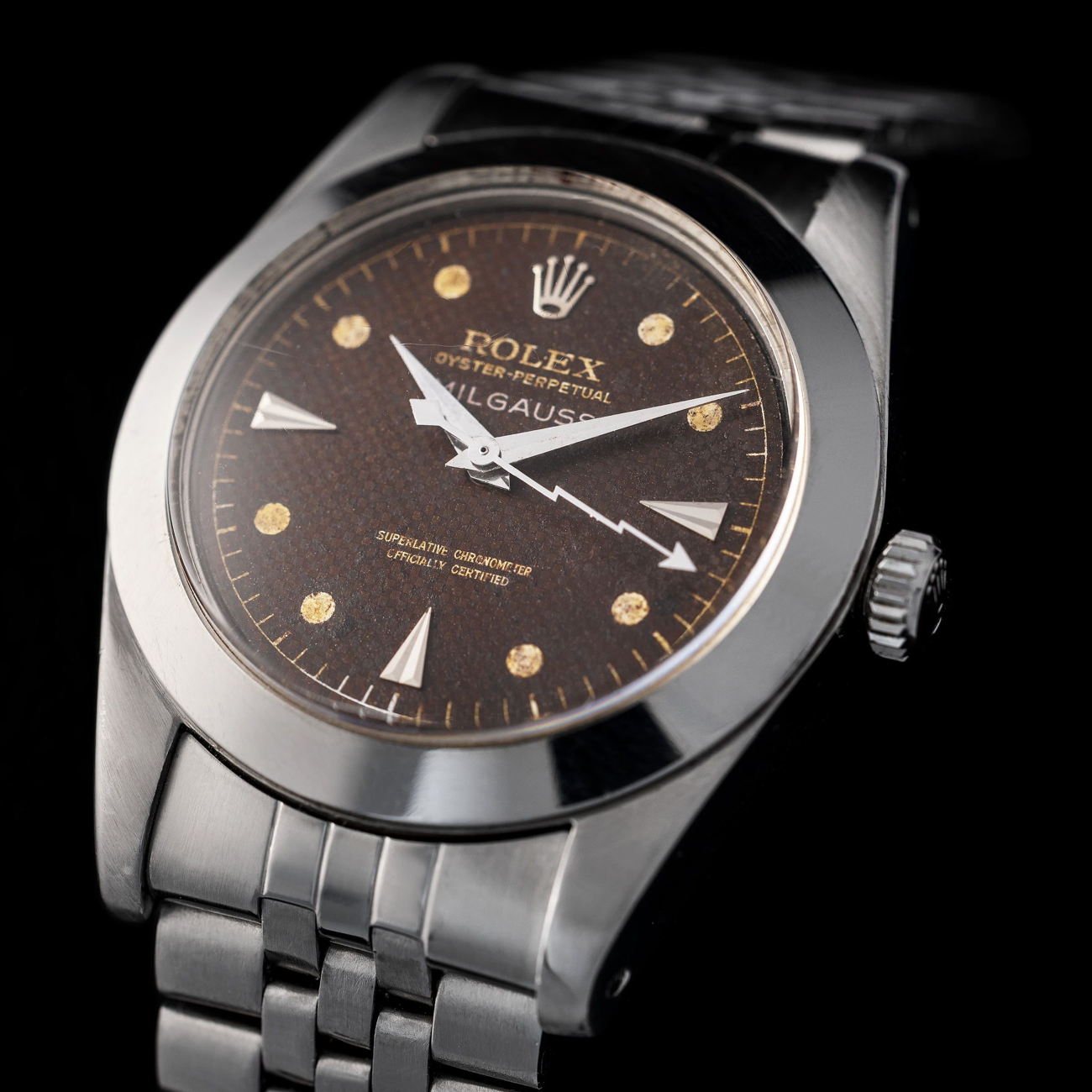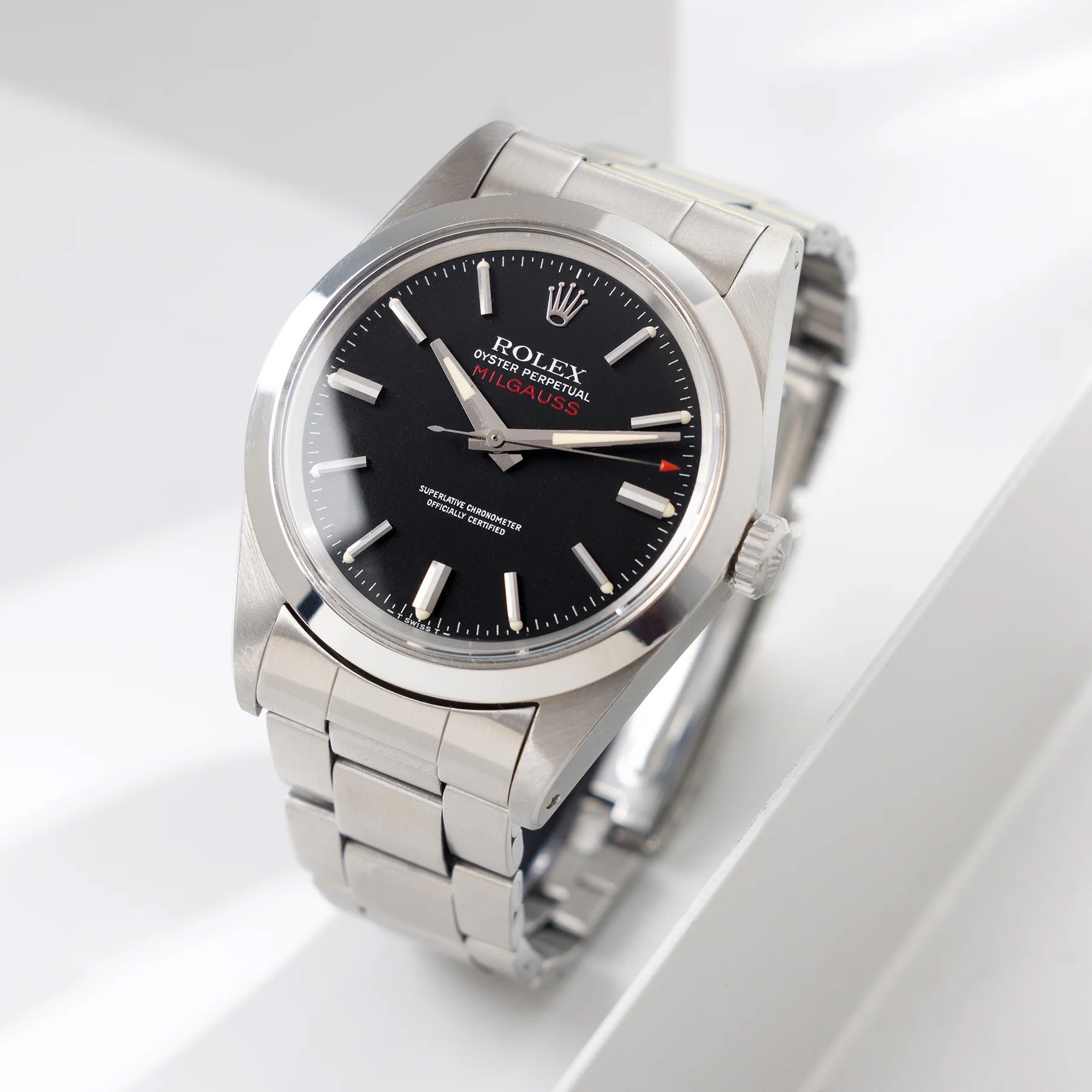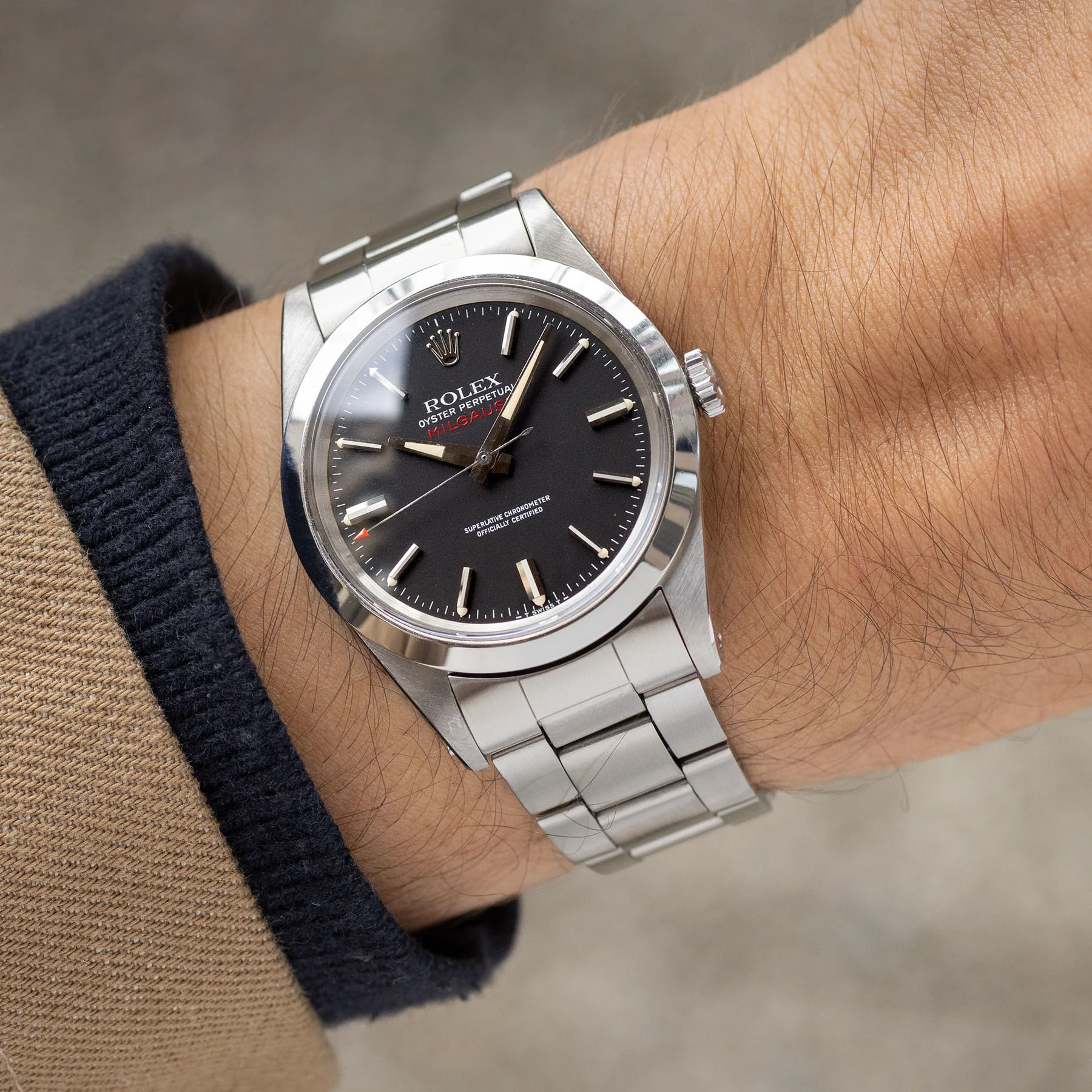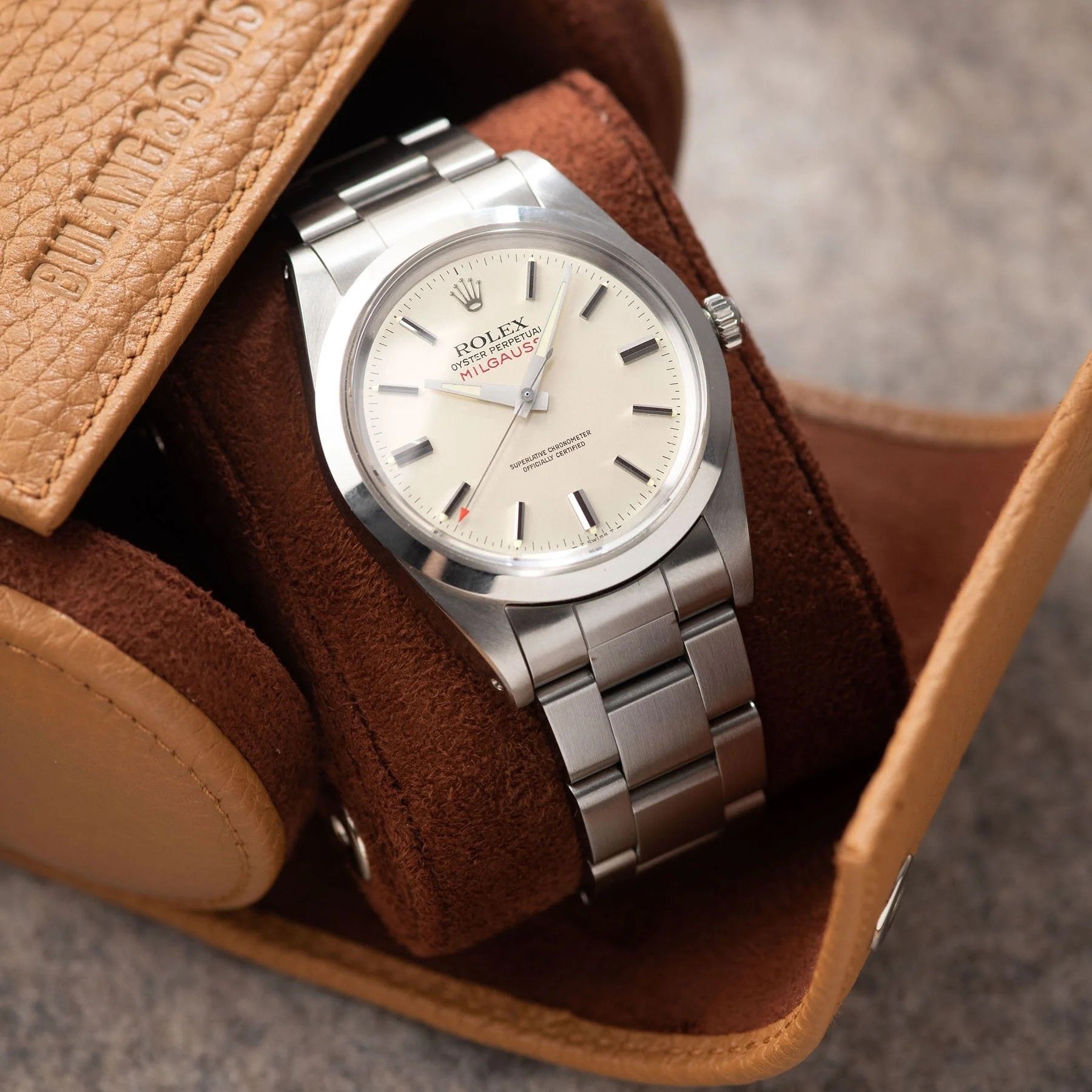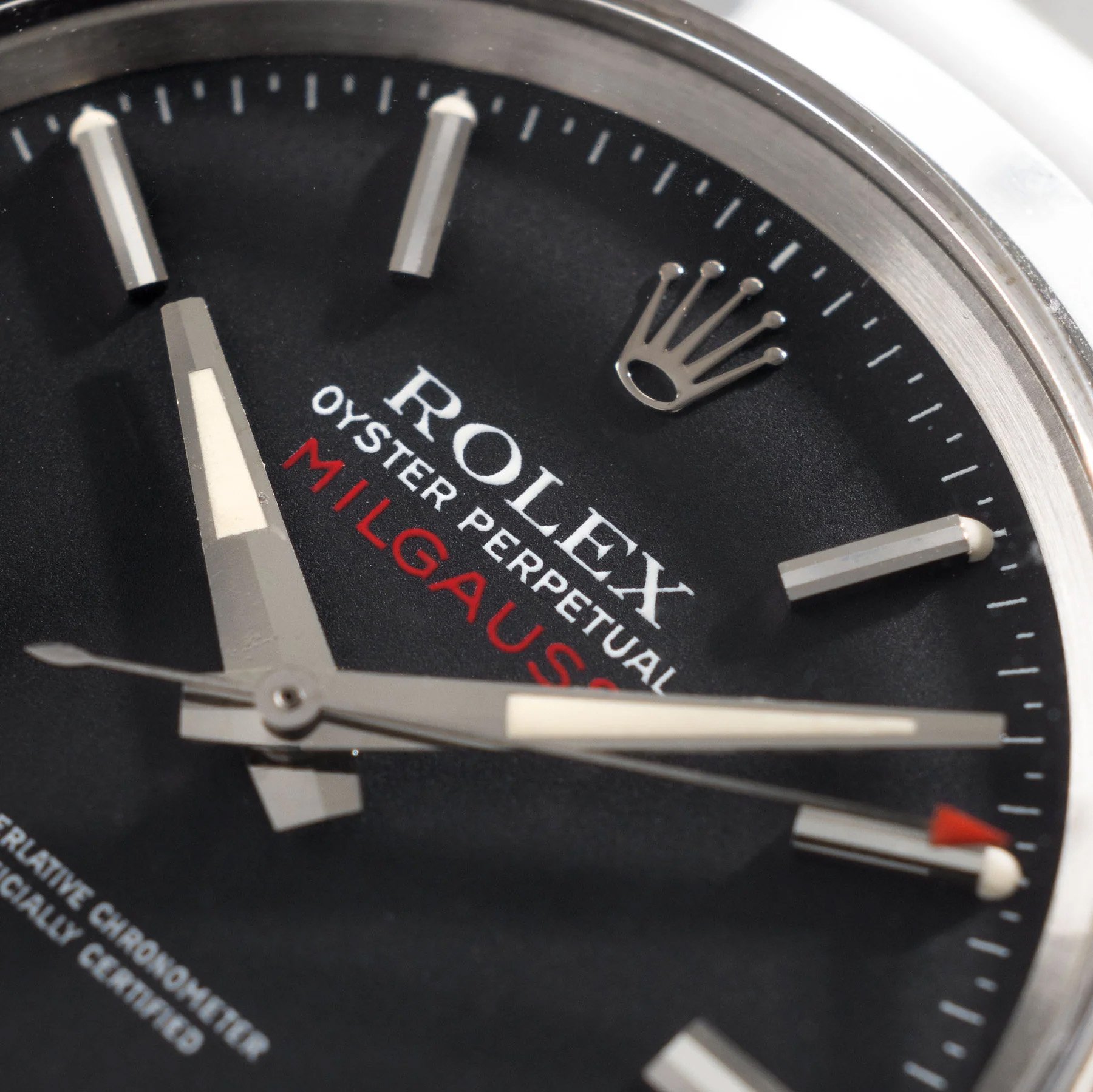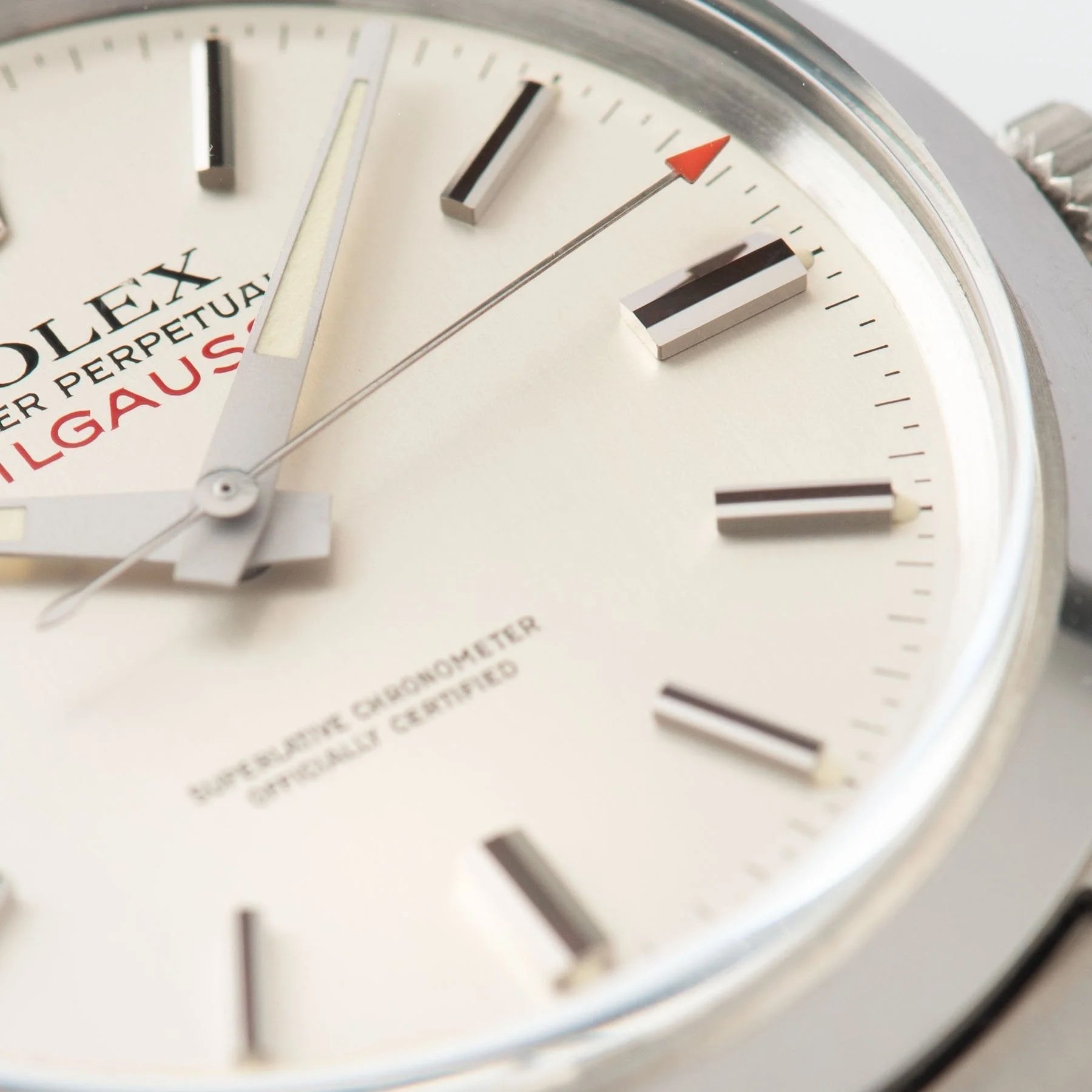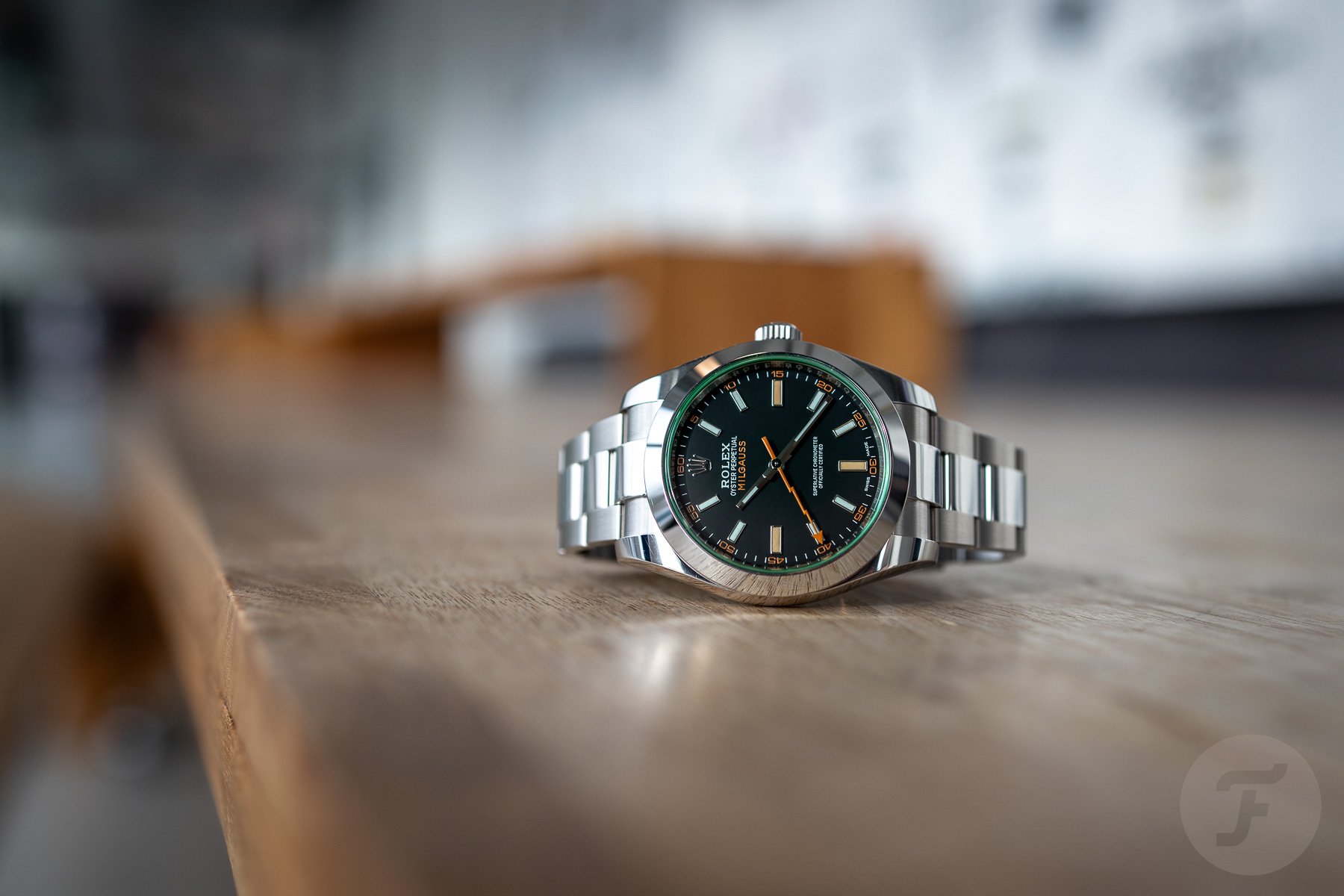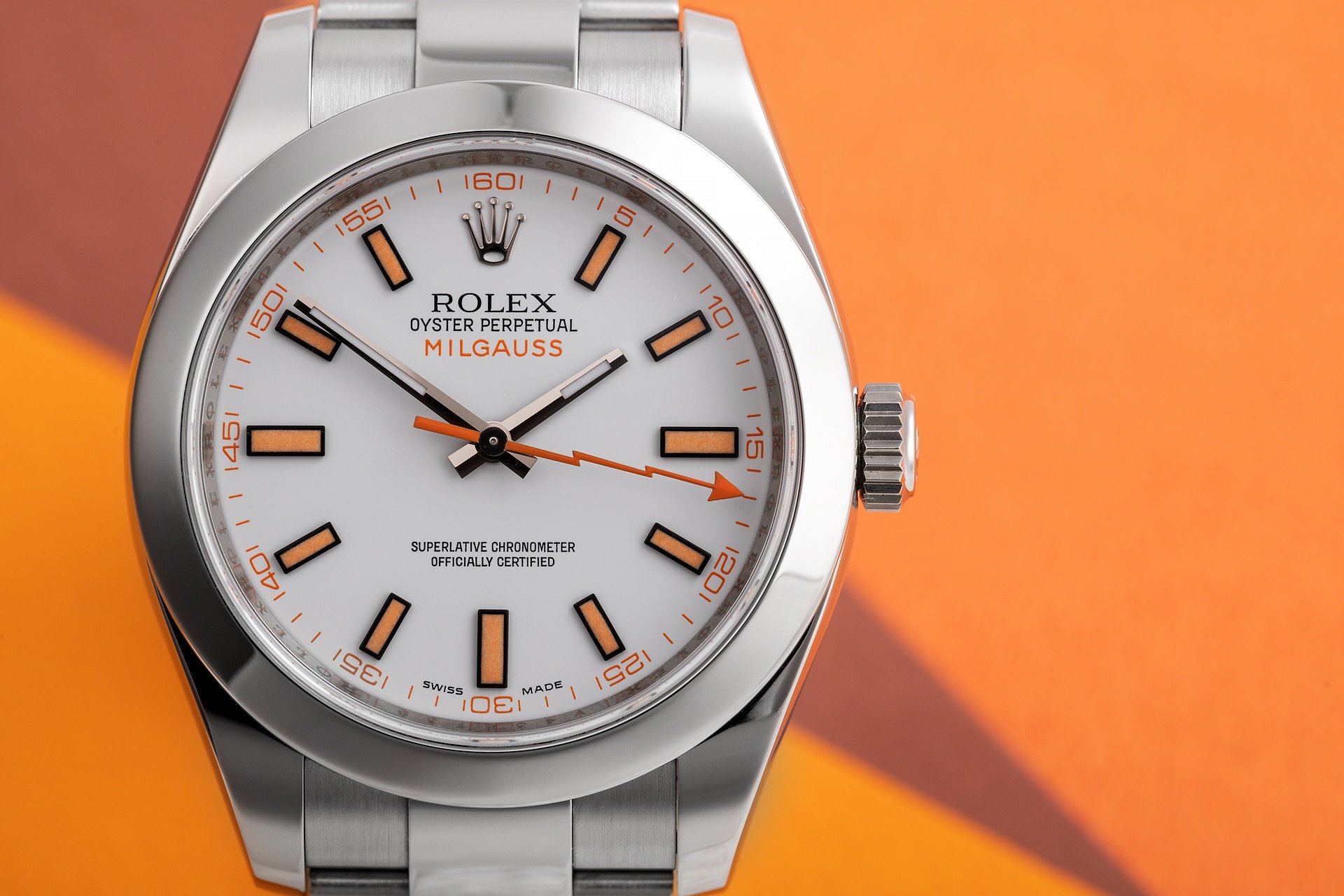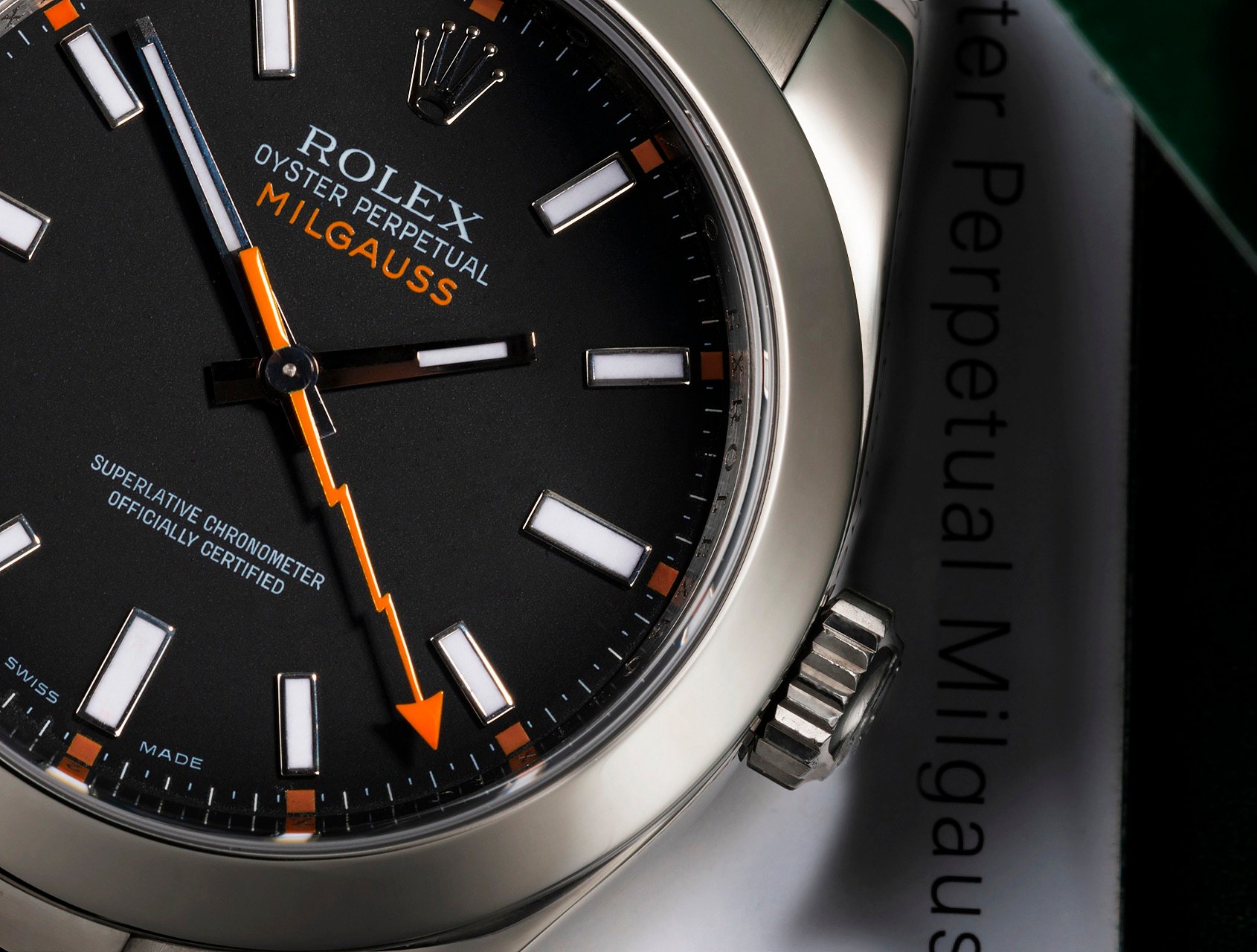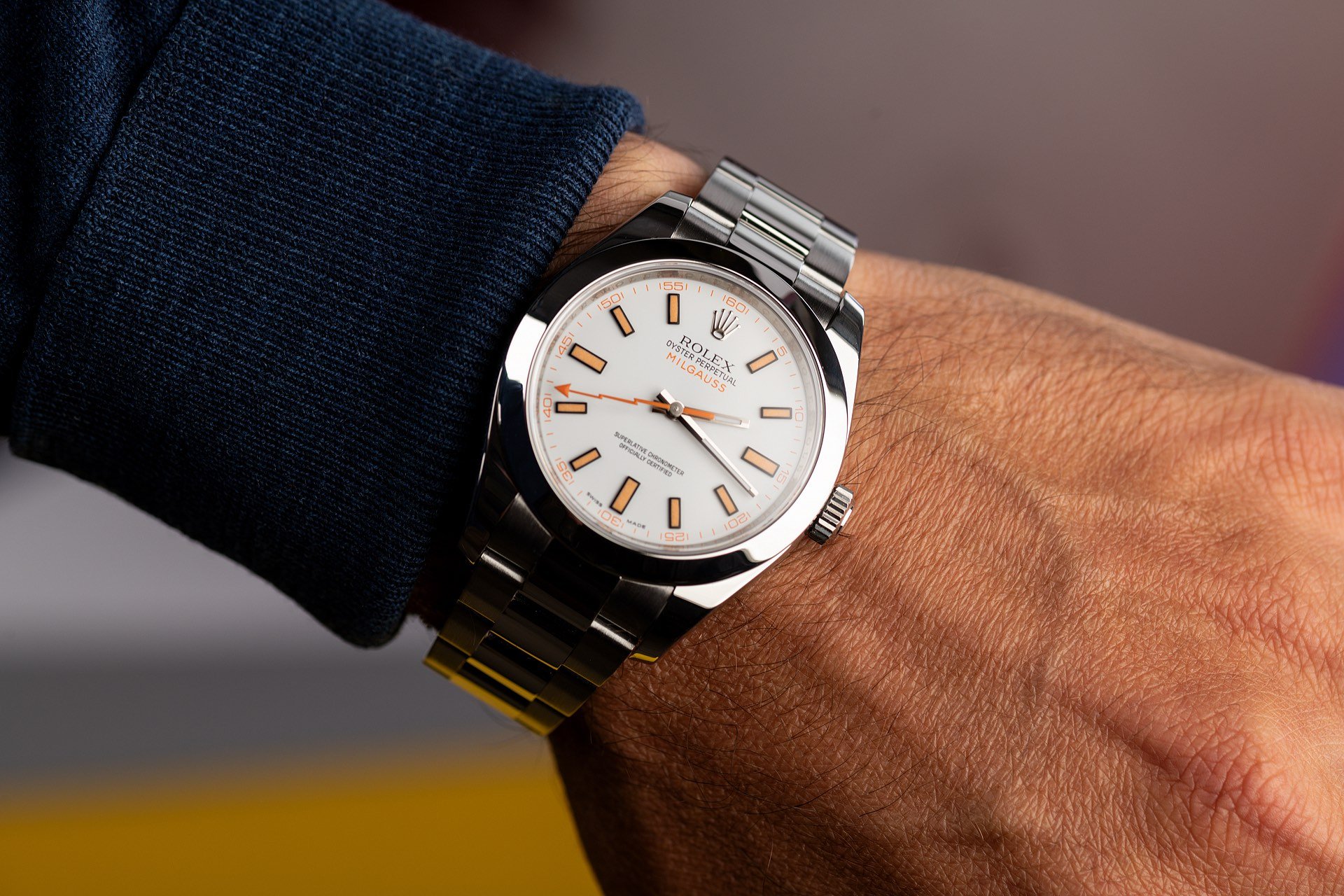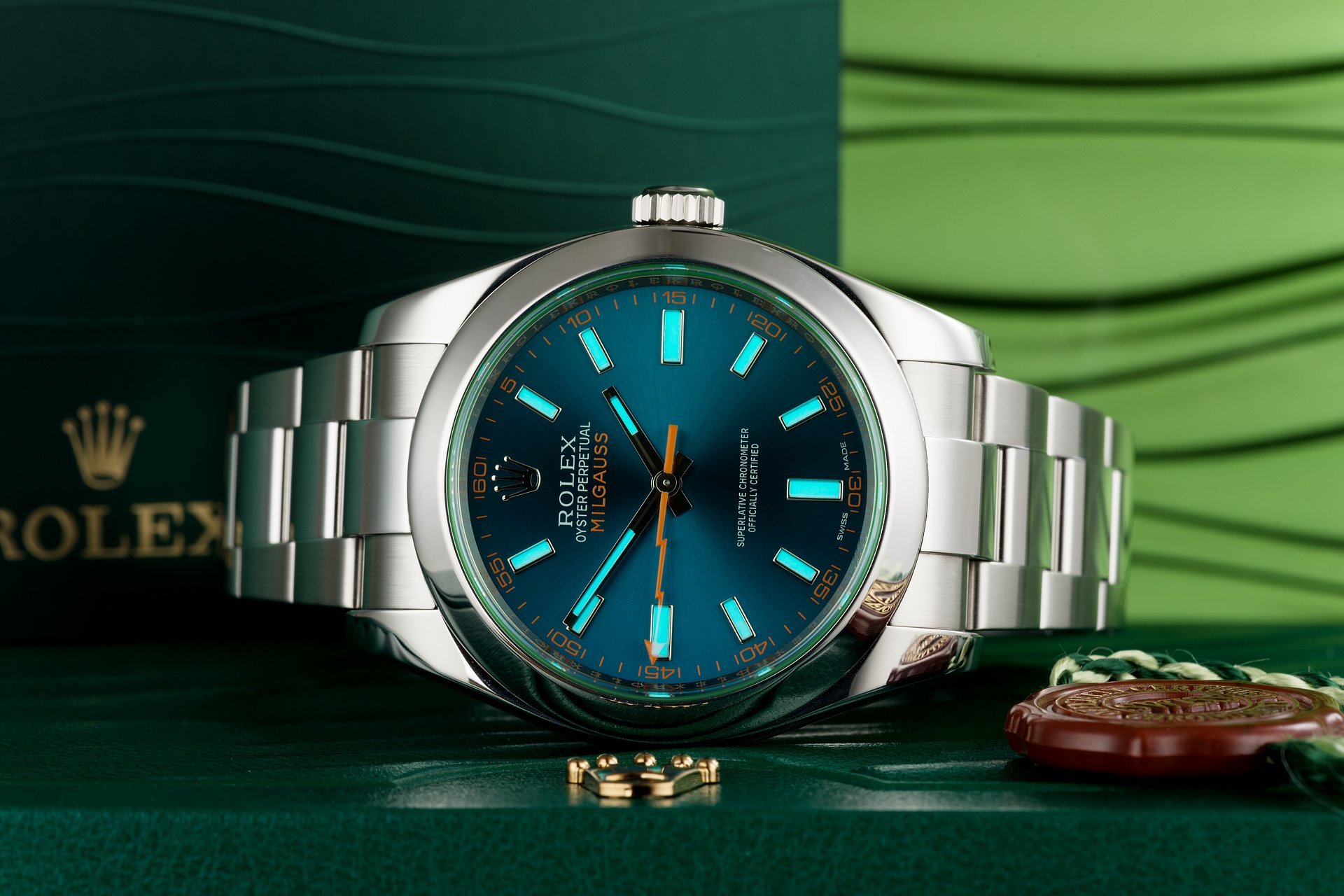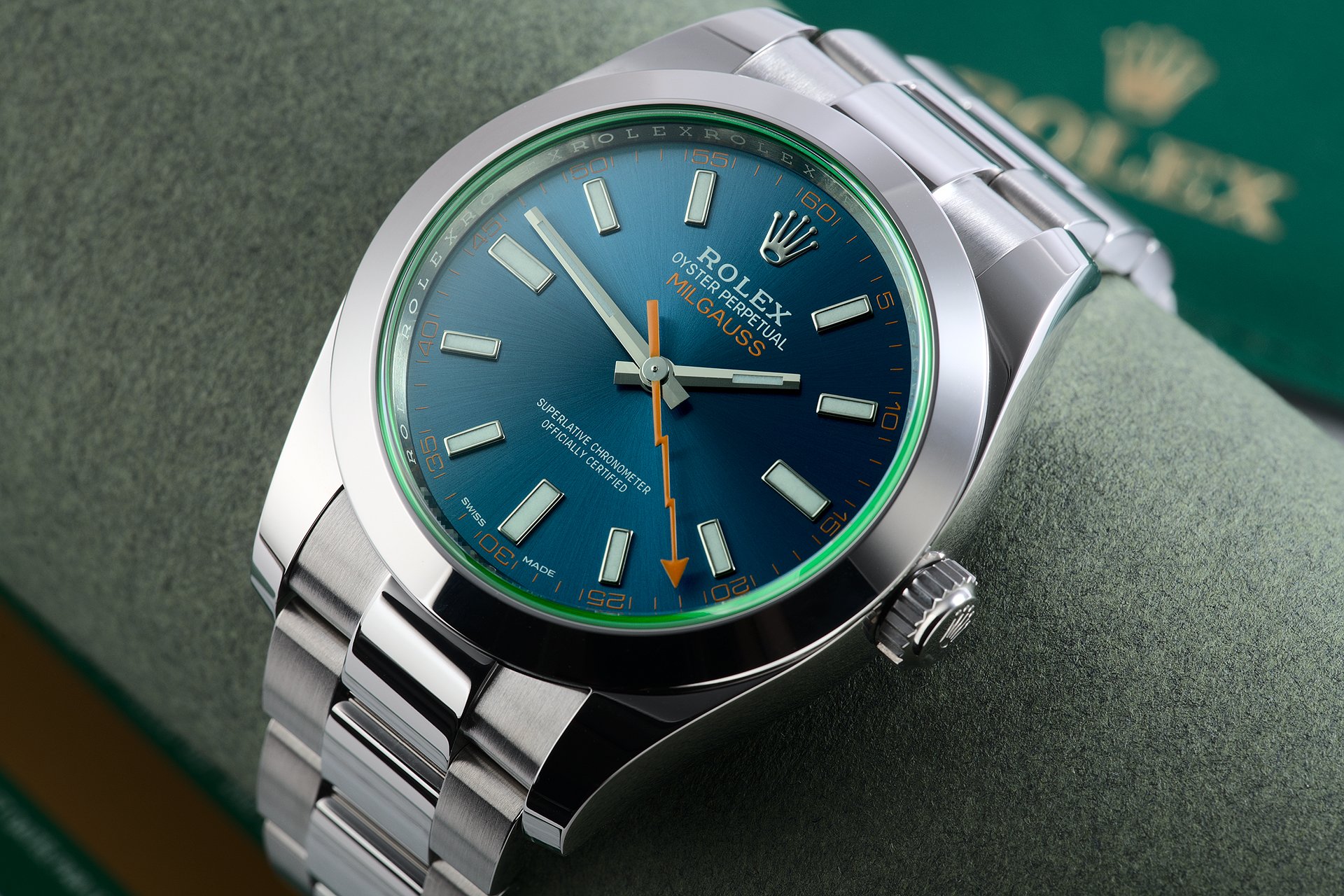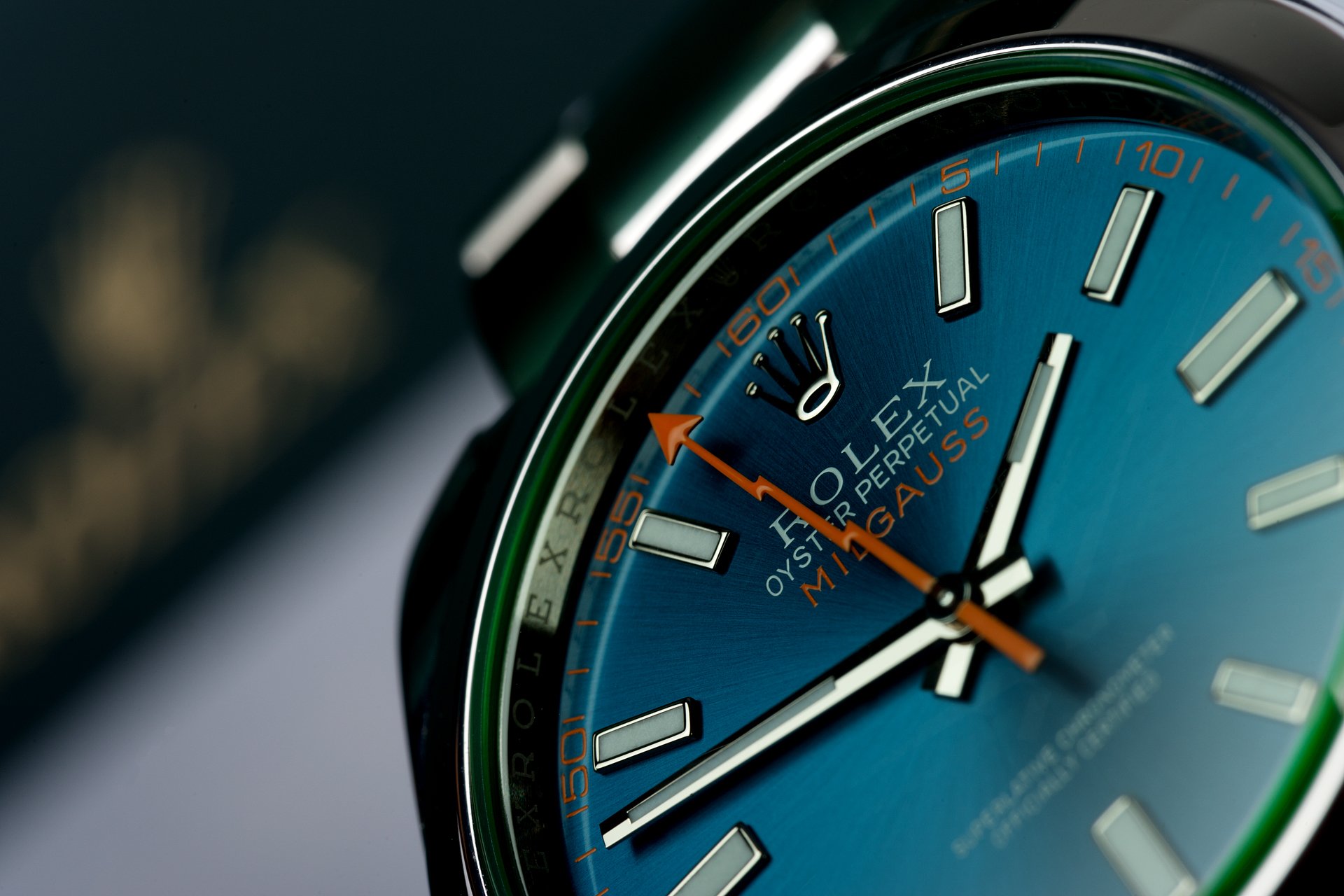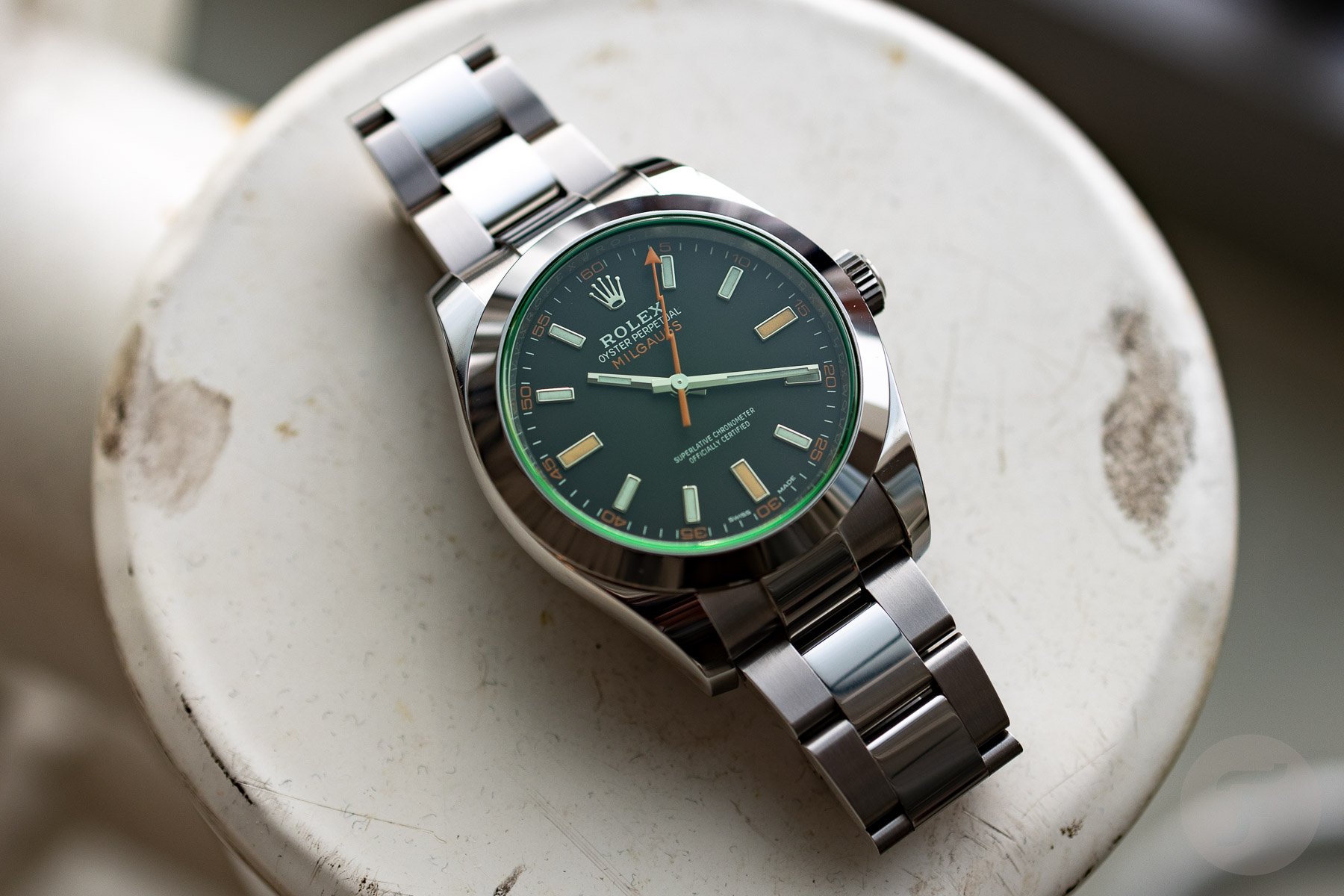Fratello’s Top 5 Rolex Milgauss Models
Another Friday, another list! This week, we look at the Rolex Milgauss, the oddball engineer’s watch that first came out in the 1950s, just like many of The Crown’s classics. But unlike the Submariner and the GMT-Master, the Milgauss hasn’t always been part of the brand’s collection since then. It’s part of the reason we couldn’t make this a list of five Rolex Milgauss references simply because there aren’t. Technically, there are only four Milgauss reference numbers. But most of you will know that the dial variations will still allow us to pick our favorite five Milgauss models. Let’s find out more!
It’s no secret that engineer’s watches have never been the industry’s biggest sellers. But these timepieces most certainly appeal to enthusiasts. Their often quirky looks and antimagnetic properties make engineer’s watches loved among collectors worldwide. There is something utilitarian and almost über-technical that appeals to fans of mechanical watches. The most famous examples are, without a doubt, the IWC Ingenieur, the Omega Railmaster, and the Rolex Milgauss. All three have a rich history dating back to the 1950s, and they are celebrated for their combination of looks and functional properties. This is part of why we would love to see the Rolex Milgauss make a comeback. But while we’re waiting for that, let’s look at five Milgauss models that show the brilliance of this outlier in the Rolex catalog.
Rolex Milgauss ref. 6543
The first Rolex Milgauss ref. 6543 was supposedly introduced in 1954/55. Some sources, however, state that it was later, so the introduction year seems to be a bit of a mystery. As most of you will know, the name comes from the French word “mille,” meaning “thousand,” and the word “gauss,” a scientific unit for magnetism.
The first Milgauss resembles a Rolex Submariner but has a different dial and dauphine hands. As you can see, the watch did not have the lightning-bolt-shaped hand yet, and the rotating bezel featured a Submariner-style 60-minute insert. The honeycomb dial had triangular hour markers at 3, 6, and 9 o’clock, immediately changing the watch’s character.
Another big difference compared to other Rolex models was hidden inside the 38mm stainless steel case with an odd 19.5mm lug spacing. The automatic movement was placed inside a soft-iron Faraday cage to protect it from magnetism. As far as the calibers, Rolex used the 1065 for the inaugural model. The automatic movement was derived from the legendary Rolex caliber 1030 and operated at 18,800vph with a power reserve of 48 hours.
Rolex supplied scientists at the Geneva-based Conseil Européen pour la Recherche Nucléaire (CERN) for proper testing in the field. The CERN scientists confirmed that the watches could withstand magnetic fields of up to 1,000 gauss without any negative effects on timekeeping. Rolex supposedly only created 150 pieces of the Milgauss ref. 6543. As you will understand, even fewer survived. That’s why they fetch astronomical prices when they come up for auction.
Rolex Milgauss ref. 6541
Not long after the release of the ref. 6543, the illustrious Rolex Milgauss ref. 6541 replaced it. This is where we see the Milgauss come into its own. What stayed were the 38mm case and the honeycomb dial. But Rolex replaced the seconds hand with the now-famous lightning-bolt-shaped hand. Additionally, this reference had a new bezel insert consisting of six divisions and a large red triangle matching the red Milgauss name on the dial.
According to a Rolex ad, the new bezel insert “serves as a simple stopwatch or for timing different operations.” Apart from its functional purpose, it also gave the watch its unique character.
The story is rather confusing when it comes to movements. Rolex used caliber 1066M to power the ref. 6541. It was based on the regular caliber 1066 and used parts made of antimagnetic materials, which included the mainspring. Later, the brand started using caliber 1065M, also known as caliber 1080, which was specially made for the Milgauss.
When the Milgauss switched to fixed bezels
Rolex also updated the construction of the antimagnetic inner case. The new Faraday cage still had the iron ring around the movement but featured an additional inner case back on top of the regular one. Whereas the first reference had a thicker case back, this new model used a regular case back thanks to the new construction. During the later stages of the production run, Rolex also produced versions of the ref. 6541 with a fixed polished stainless steel bezel rather than the rotating bezel.
These models were supposedly made for the American market. Compared to versions with the rotating bezel, though, they weren’t quite as distinct. In addition to the intended purposes mentioned in the ad, the rotating bezel certainly gave the Milgauss ref. 6541 a lot of character.
Quite simply, I love the quirky style of the 6541, which hints at the purpose for which it was created. As I explained in an article about the IWC Ingenieur, I have a soft spot for engineer’s watches because my father was an engineer. For me, the Milgauss ref. 6541 perfectly epitomizes an engineer’s watch.
Rolex Milgauss ref. 1019
In 1960, Rolex replaced the ref. 6541 with the new ref. 1019. This Milgauss was a huge change from the two watches that came before. It stayed in production until 1988, making it one of the references with the longest production runs in Rolex history. As you can see, the watch featured an Oyster Precision-style case with a fixed, polished bezel. The 38mm diameter remained, but the overall style changed quite drastically.
The Milgauss ref. 1019 was available with a matte black dial or a vertically brushed silver dial. The latter was especially cool because that brushed finish was previously only used for rare Datejust and Oyster models. There were also versions with a glossy black dial, but those were very rare. All of the dials featured the Milgauss name in red, which corresponded with the red tip of the now-straight seconds hand. As you can see, the hour and minute hands also changed to a shape we haven’t seen often for Rolex watches. But the style works well with the overall aesthetic.
A new aesthetic and a new caliber
Rolex removed the quirky lightning-bolt-shaped hand that fans love so much. But you must understand that while that may be a unique and much-loved feature now, the Milgauss ref. 6541 was never a huge commercial success. So it makes sense that Rolex removed some of the quirkiness and replaced it with a more straightforward-looking Milgauss.
Inside the case with its Faraday cage, the brand also used a new movement. Caliber 1580 replaced the previous caliber 1080 and increased the frequency from 18,000vph to 19,800vph. The power reserve also went up to 48 hours, and in 1972, Rolex introduced hacking as a new feature.
Despite the updated aesthetic and the long production run, the Milgauss ref. 1019 was never a great seller. However, as you will understand, in the Rolex universe, rarity means high prices. That’s why you will see these models go for a lot of money when they pop up for sale. The discontinuation of this reference in 1988 also meant that the Milgauss name was no longer part of the Rolex collection.
Rolex Milgauss ref. 116400
That all changed in 2007 when Rolex introduced three new Milgauss variants during Baselworld that year. The Milgauss ref. 116400 was a modern-day Rolex that combined the style of both the refs. 1019 and 6541. The first two versions featured a black dial and a white dial, both with orange accents.
The third model was the ref. 116400GV (Glas Vert) with a green sapphire crystal. This special anniversary model celebrated the 50th anniversary of the Milgauss. The three new Milgauss models had a bigger 40mm case and donned the lightning-bolt-shaped seconds hand in all its glory.
All three versions perfectly represent the quirky character of the vintage models that came before, but they do so in modern Rolex style. The one with the green sapphire crystal stands out the most, of course, because it adds an extra element that turns the quirky character up to 11.
Inside the case, Rolex equipped the watches with its caliber 3131. This automatic movement was still placed inside a Faraday cage but also featured a blue Parachrom hairspring. The pallet fork and escape wheel were made of amorphous and antimagnetic nickel-phosphorus.
Discontinuing the models with regular sapphire crystals
In 2016, Rolex discontinued the standard black- and white-dial versions after a nine-year production run. As a result, only the version with the black dial and green crystal and the Z-Blue version that we will get to in a minute stayed in production. Once again, the standard Milgauss models did not turn out to be a huge commercial success. But a couple of years after the two versions were discontinued, people jumped on them as if they were the next must-have Rolexes. Today, you can get either of the two for less than €8,000, making them tempting offerings.
Rolex Milgauss ref. 114600GV Z-Blue
This brings us to the last of the Milgauss models. The Z-Blue version of the Milgauss debuted in 2014, so for two years, Rolex produced all four modern Milgauss variants. After the discontinuation of the white- and black-dial versions with the regular sapphire crystals, the two versions with green sapphire crystals stayed in production until 2023.
The Z-Blue model has a vibrant electric-blue sunray dial that pops in natural light. Combined with the orange details and the green sapphire, it makes for a quirky and very colorful watch. But there are a lot of fans of this Z-Blue version, although it is technically equal to the other ref. 116400 variants. I happen to think it’s a bit over the top, whereas the black-dial version hits the sweet spot between being quirky and serious.
But the popularity is reflected in the prices on the secondary market. As of writing, asking prices start around €10K and increase to €15K for an unworn example. In comparison, asking prices for the black-dial version with the green sapphire start at roughly €8.5K and go up to €15K as well. In today’s market, the last generation of Milgauss models are still great picks. They look amazing and haven’t lost any of their relevance.
Final thoughts on this week’s Top 5
This begs the question of whether the Milgauss will return to the Rolex collection. At Fratello, we love the brand’s quirky engineer’s watch, so we are all for a modern, updated version of it. Whether that will come to fruition or not remains to be seen. With so many popular Rolex sports models, the oddball Milgauss will never be among the brand’s biggest commercial successes.
Then again, neither the 1908 nor the Air-King holds a top spot in the current collection. And with a story like the Milgauss has, it always deserves a spot in the collection as far as we are concerned. But what are your thoughts on the Rolex Milgauss? Let us know in the comments section what your favorite version is and whether you would like to see a return. We’ll be back next week for another Top 5.

